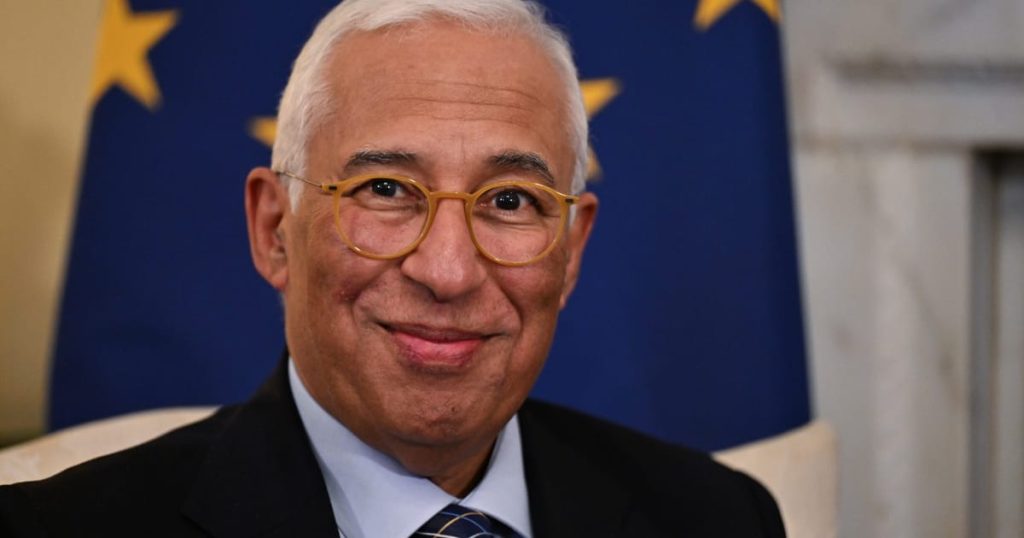António Costa, the seasoned Portuguese politician, has taken the helm of the European Council, inheriting a complex and challenging political landscape. His appointment, following the summer’s European elections, was largely based on his reputation as a skilled negotiator and consensus builder, a stark contrast to his predecessor, Charles Michel, whose tenure was marked by criticism for inadequate preparation and a perceived inability to command the respect of European leaders. Costa’s mandate is to chair summits, mediate between often conflicting national interests, and steer the EU’s collective agenda forward. However, even with his diplomatic prowess, success hinges on the cooperation and support of influential member states, a dynamic currently hampered by internal political turmoil and diverging priorities.
A critical factor in the EU’s efficacy is the Franco-German engine, traditionally the driving force behind European integration and policy initiatives. Currently, however, this vital partnership is sputtering. France is grappling with internal political crises, weakening President Macron’s position on the European stage and limiting his ability to effectively champion EU initiatives. Meanwhile, Germany, Europe’s largest economy and primary financial contributor, is preoccupied with an upcoming snap election. This political uncertainty creates a vacuum in leadership and effectively paralyzes any significant financial decisions at the EU level, as the bloc awaits the formation of a new German government. Without the clear direction and financial backing from Berlin, the EU struggles to advance its agenda.
Adding further complexity to the equation is the persistent obstructionism of Hungarian Prime Minister Viktor Orbán, whose pro-Russia stance and frequent clashes with Brussels create roadblocks on various fronts, particularly regarding support for Ukraine. Orbán’s resistance to consensus-building on matters related to sanctions against Russia and aid for Kyiv complicates the EU’s efforts to present a united front against the ongoing conflict. This internal division undermines the bloc’s ability to effectively exert pressure on Russia and hinders the provision of timely and comprehensive assistance to Ukraine.
Against this backdrop of internal challenges, the war in Ukraine looms large on the European agenda. President Zelenskyy’s upcoming address to the European Council is expected to reiterate the urgent need for continued and increased military and financial aid. Costa, in his pre-summit letter to European leaders, has acknowledged the centrality of the Ukrainian crisis to the discussions, underscoring the gravity of the situation and the pressing need for a coordinated European response. While the EU has demonstrated significant support for Ukraine thus far, the ongoing war continues to exert immense pressure on the bloc’s resources and unity, requiring sustained commitment and effective leadership to navigate the complex political landscape.
The confluence of these challenges presents a formidable test for Costa’s leadership. He must navigate the choppy waters of internal divisions, manage the expectations of diverse national interests, and effectively advocate for a unified and decisive European response to the ongoing crisis in Ukraine. His success will depend not only on his personal diplomatic skills but also on the willingness of member states, particularly France and Germany, to overcome their internal challenges and re-engage with the broader European project. The ability of the EU to provide meaningful support to Ukraine, address critical internal issues, and maintain its global standing rests on navigating these complex political dynamics.
Ultimately, Costa’s effectiveness as President of the European Council will be judged by his ability to bridge the divides within the bloc, revitalize the Franco-German partnership, and forge a cohesive and effective response to the multifaceted challenges facing Europe. His task is not simply to chair meetings, but to actively shape the direction of the EU at a critical juncture in its history, requiring him to leverage his consensus-building skills and navigate the intricate web of competing national interests and geopolitical realities. The future trajectory of the EU depends significantly on its ability to overcome these obstacles and reassert its role as a global leader, with Costa playing a pivotal role in this crucial endeavor.














